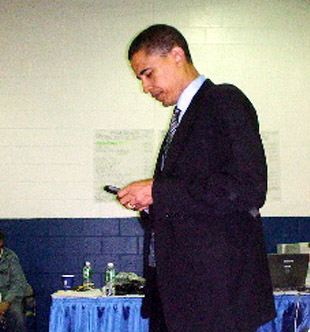Telecom firms dig in their heels over cybersecurity reform

The U.S. government recently declared cybercrime more of a threat than terrorism, but implementing ways to combat the problem may not be so easy.
According to Reuters, both Internet service providers and a number of large telecommunications firms have convinced the Obama Administration that making security measures compulsory is not the correct step to take.

In a report released Monday (.pdf) by the FCC on cybersecurity, 20 "controls" are documented with the protection of telecommunications in mind for both businesses and consumers. However, representatives on the advisory panel — from firms and bodies including AT&T, Sprint, Verizon and Comcast — argued against an FCC recommendation that telecom companies should be made to abide by these security protocols.
As a result, the panel could not reach an agreement which is required to make such a recommendation. Members of state authorities and non-profit organizations were also present.
The report says:
"The user community within Working Group 11 would prefer for the FCC to encourage industry to use the 20 Controls.
However [...] the communications sector participants believe that some unique aspects of managing diverse multi-tenant communications networks will require additional evaluation in order to determine the extent to which the 20 Control protect network infrastructure directly; as well as, to determine the applicability of the 20 Controls to communications sector."
Over the past month, meetings have taken place in the United States which have centered around the threat cybercrime now poses to businesses and national infrastructure. Now considered a more substantial threat than terrorism by the U.S. government, agencies, corporations and businesses are wondering just how far the government should go in enforcing legislation which could become restrictive, and how much further firms must go to invest and promote adequate protection for their networks and data.
Last week, business leaders met with President Obama, appealing for a "light touch" in the government's steps to tackle cybercrime in future legislation. The need for a flexible approach was also raised, as Honeywell International's David Cote noted, "Flexibility is important, because this is the kind of threat that changes very quickly. The threat is real, there is a consistent, persistent threat here that we need to be concerned about as a country."